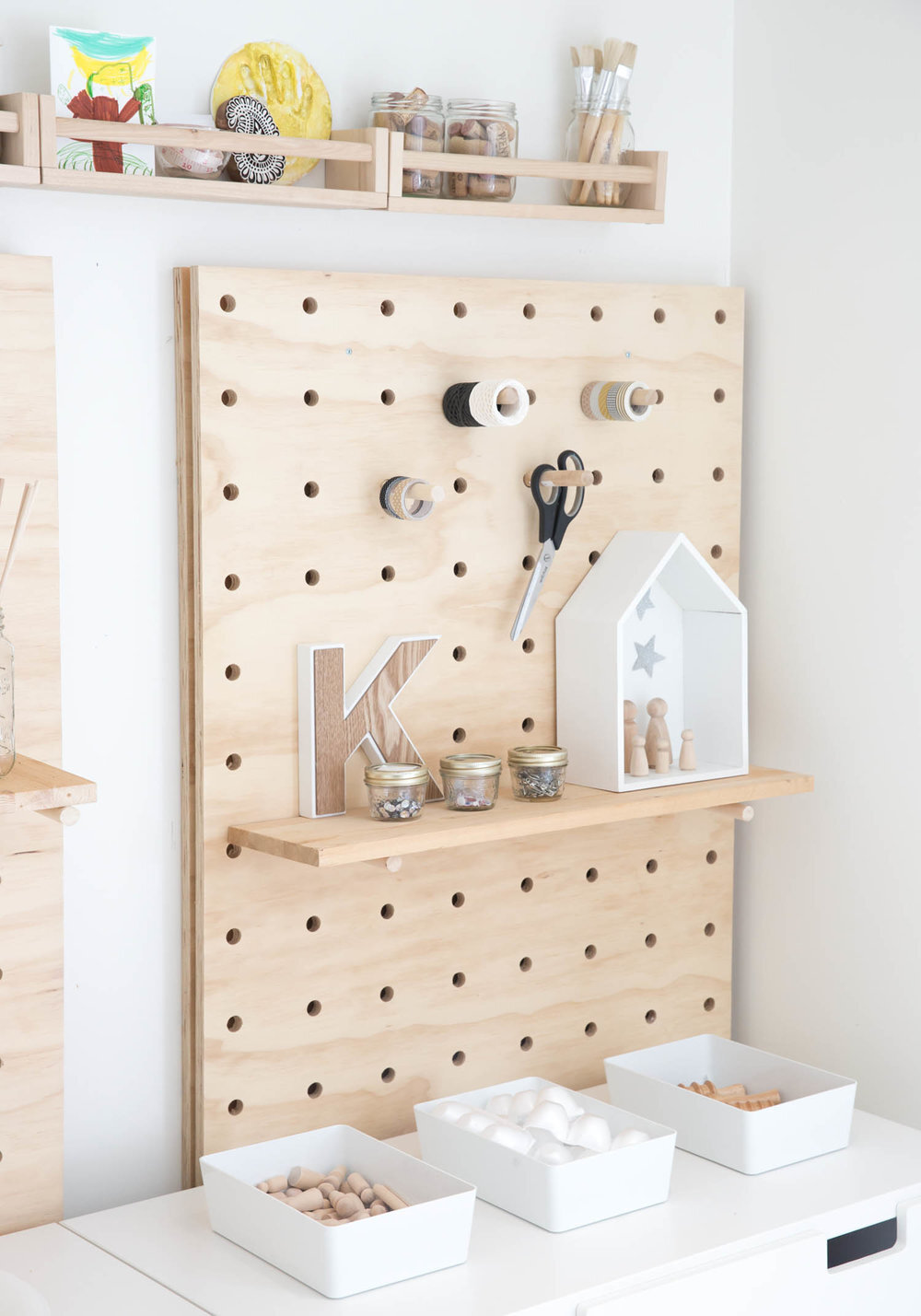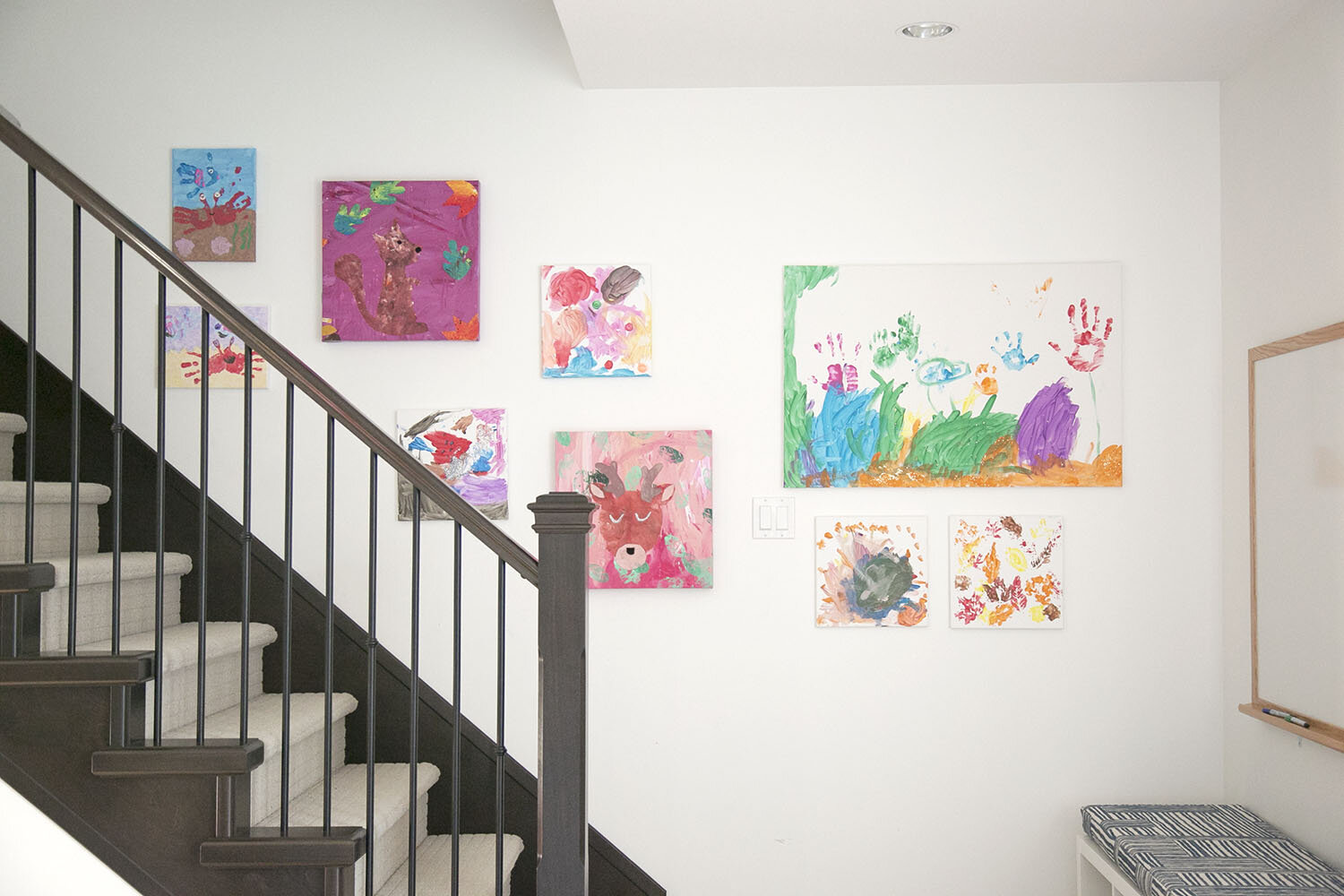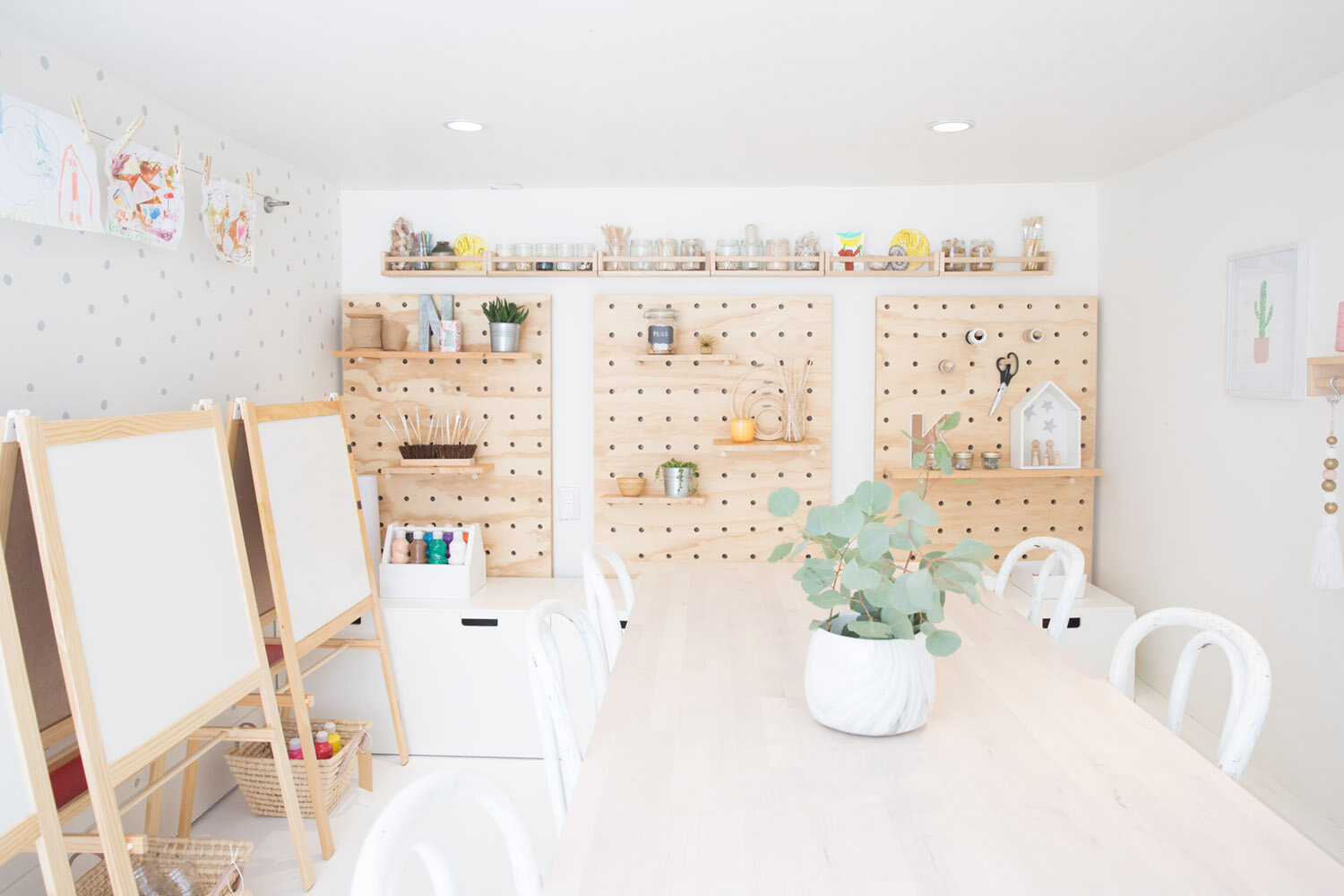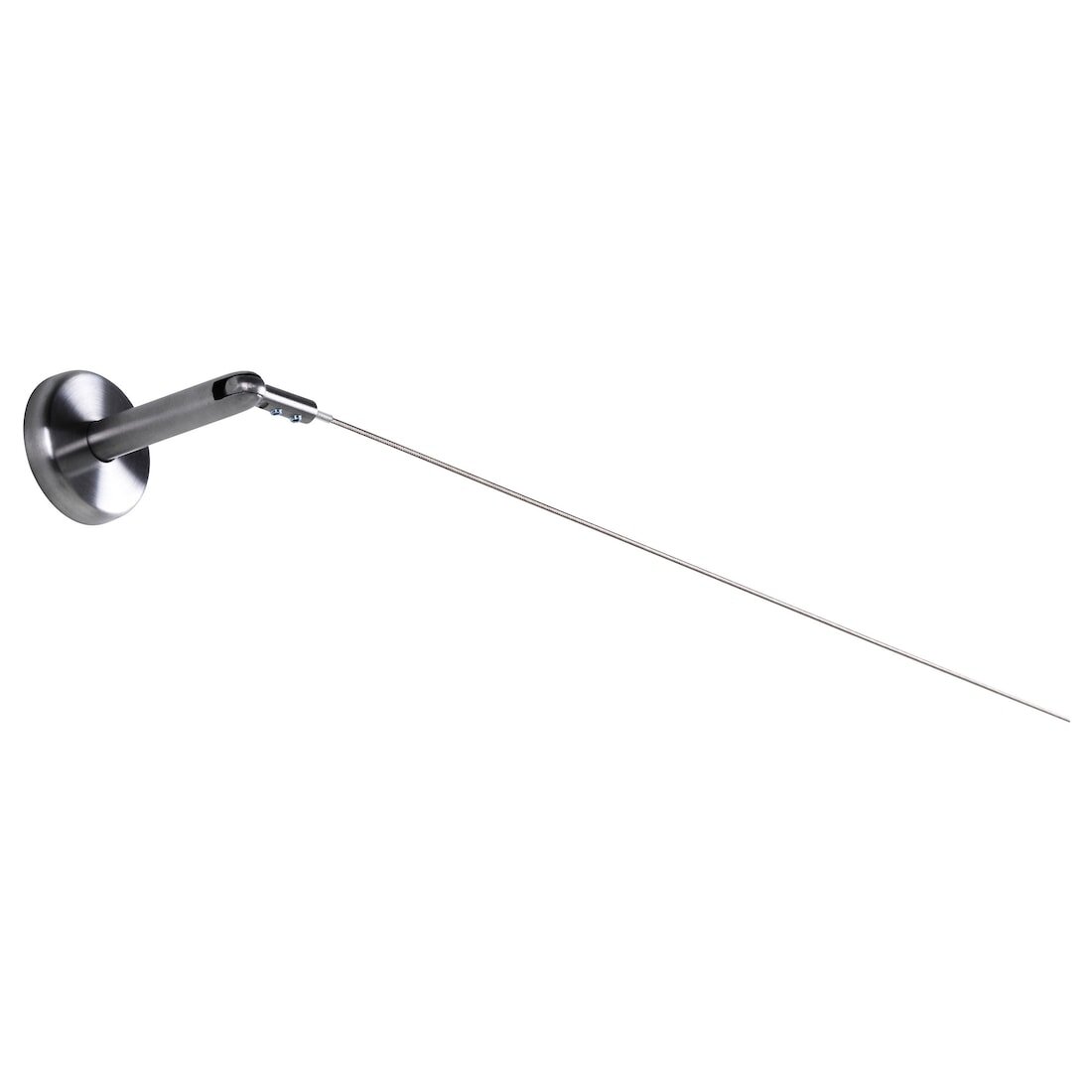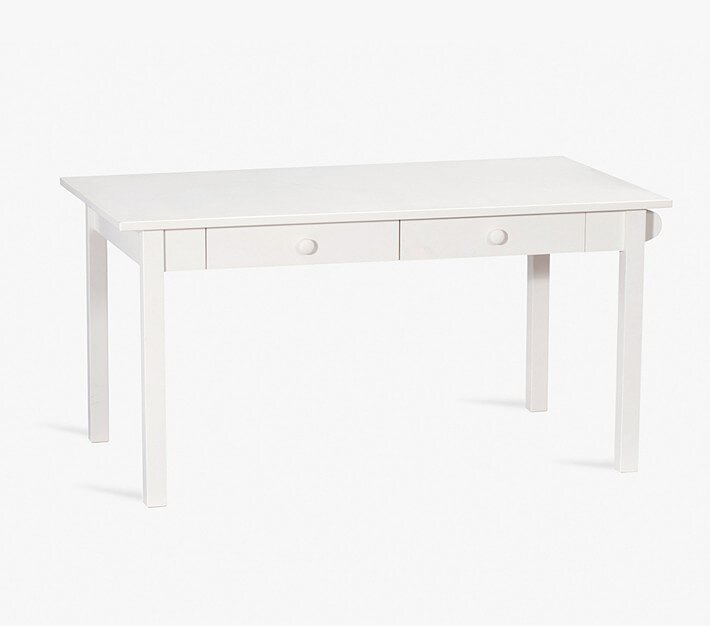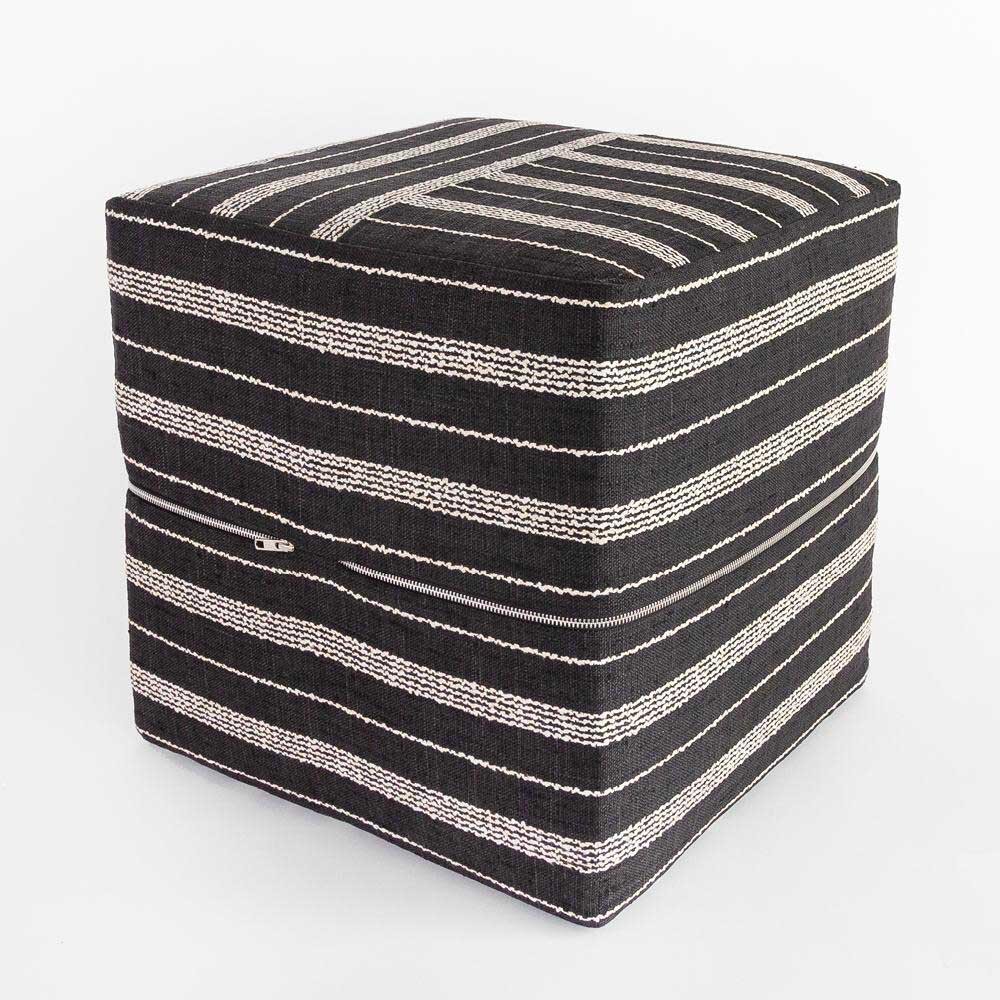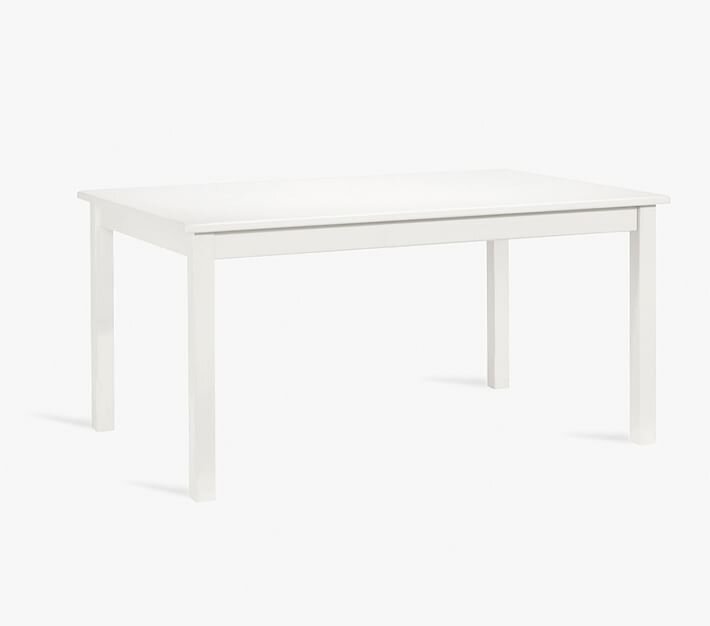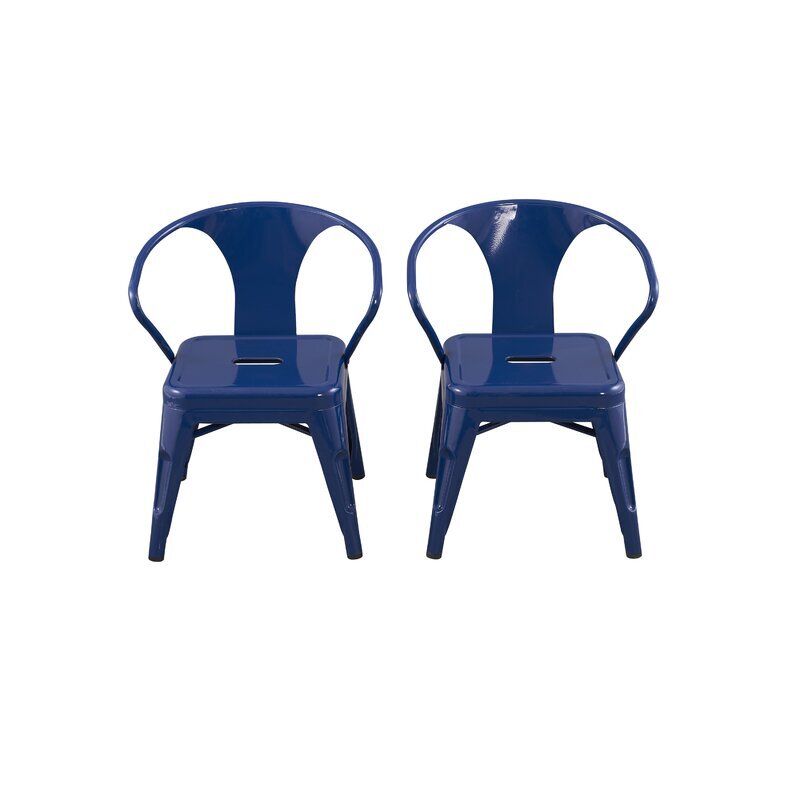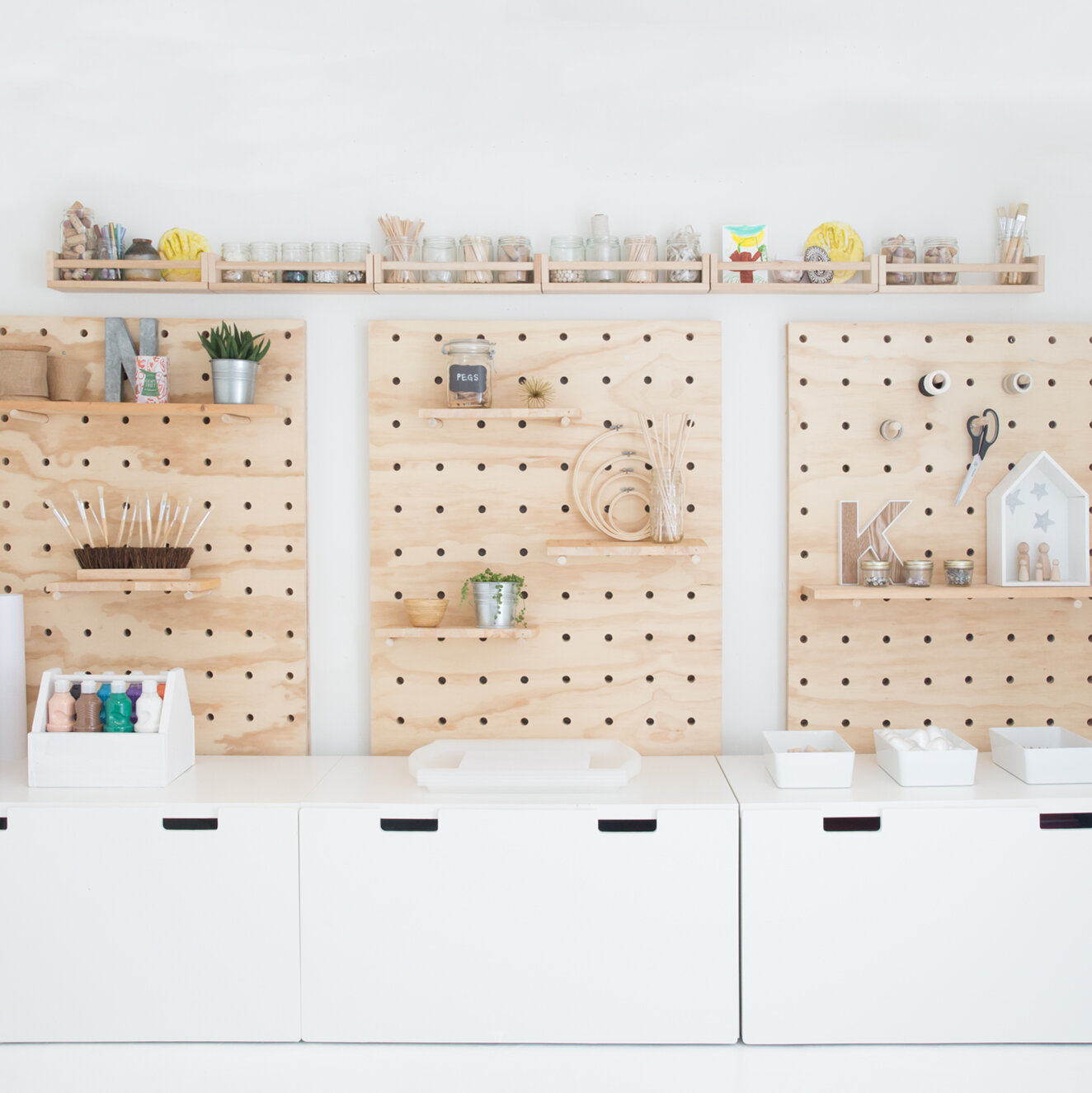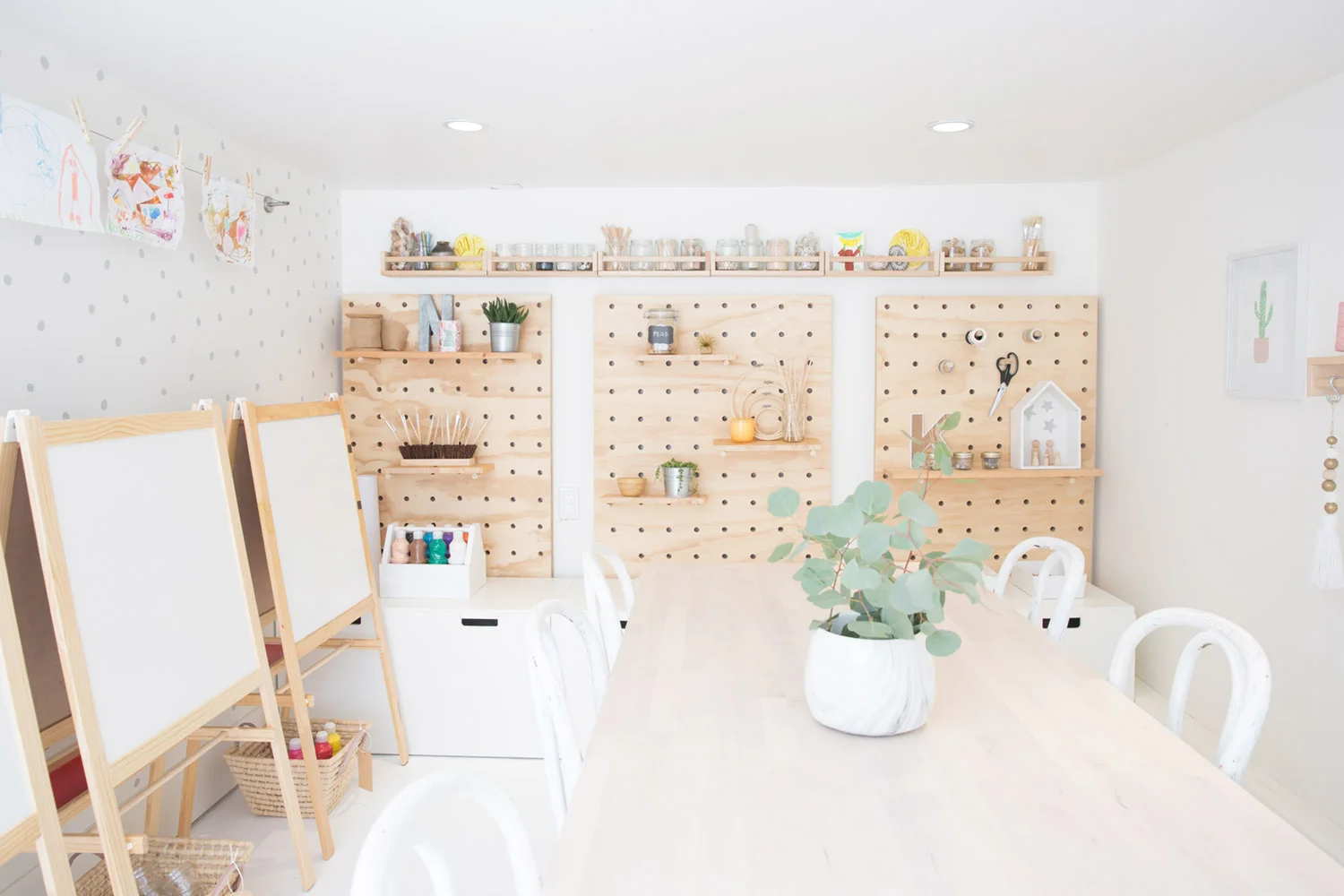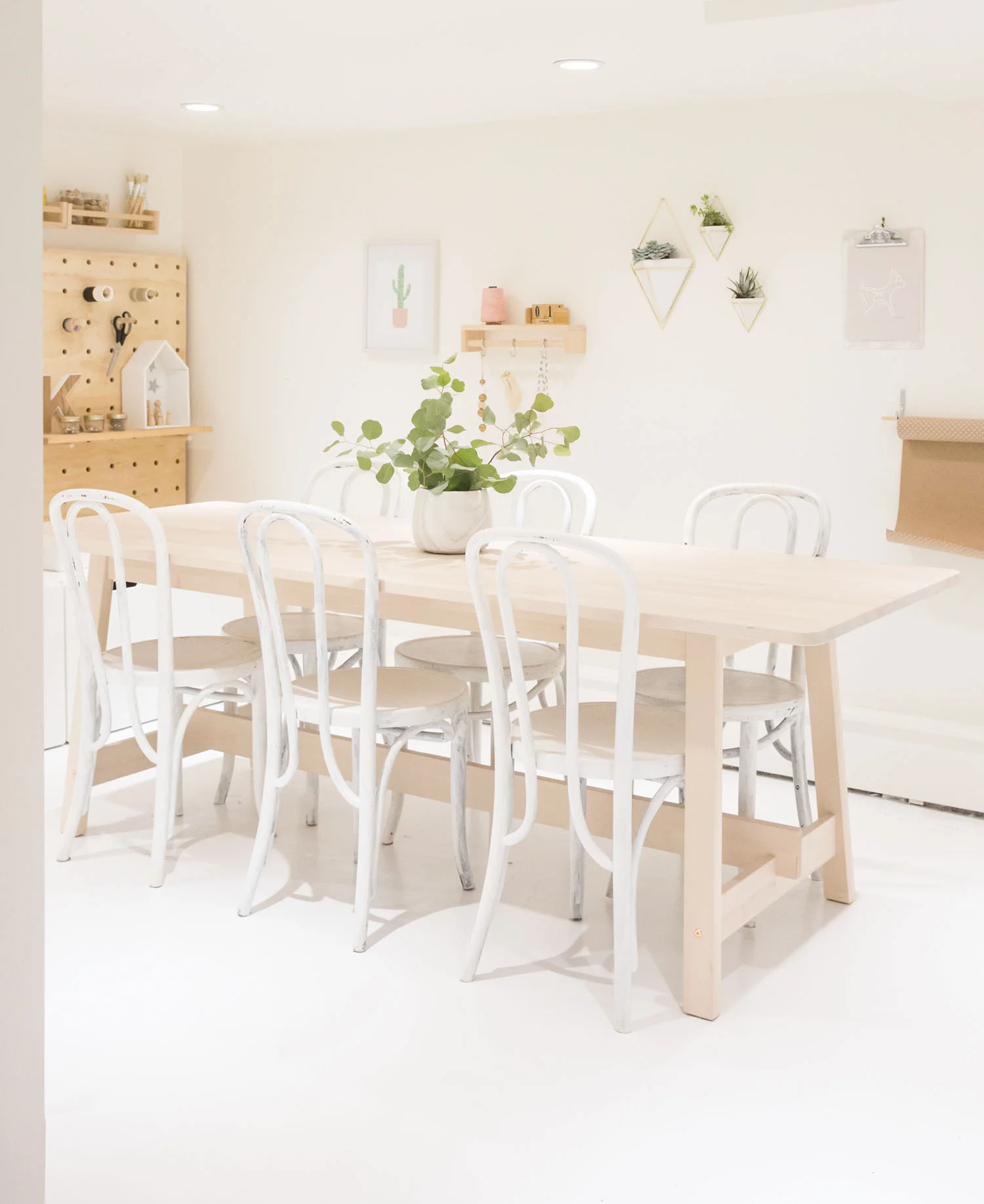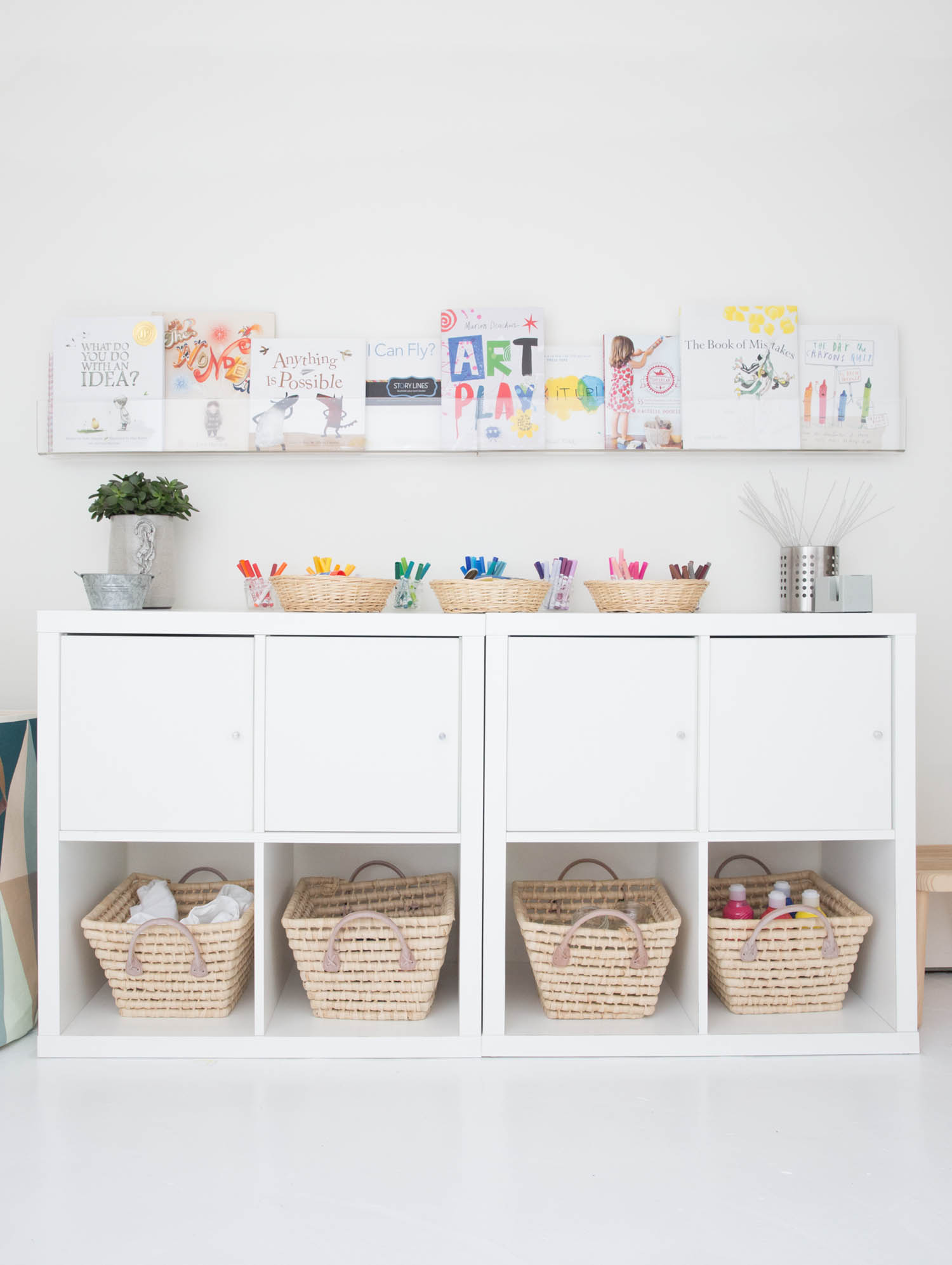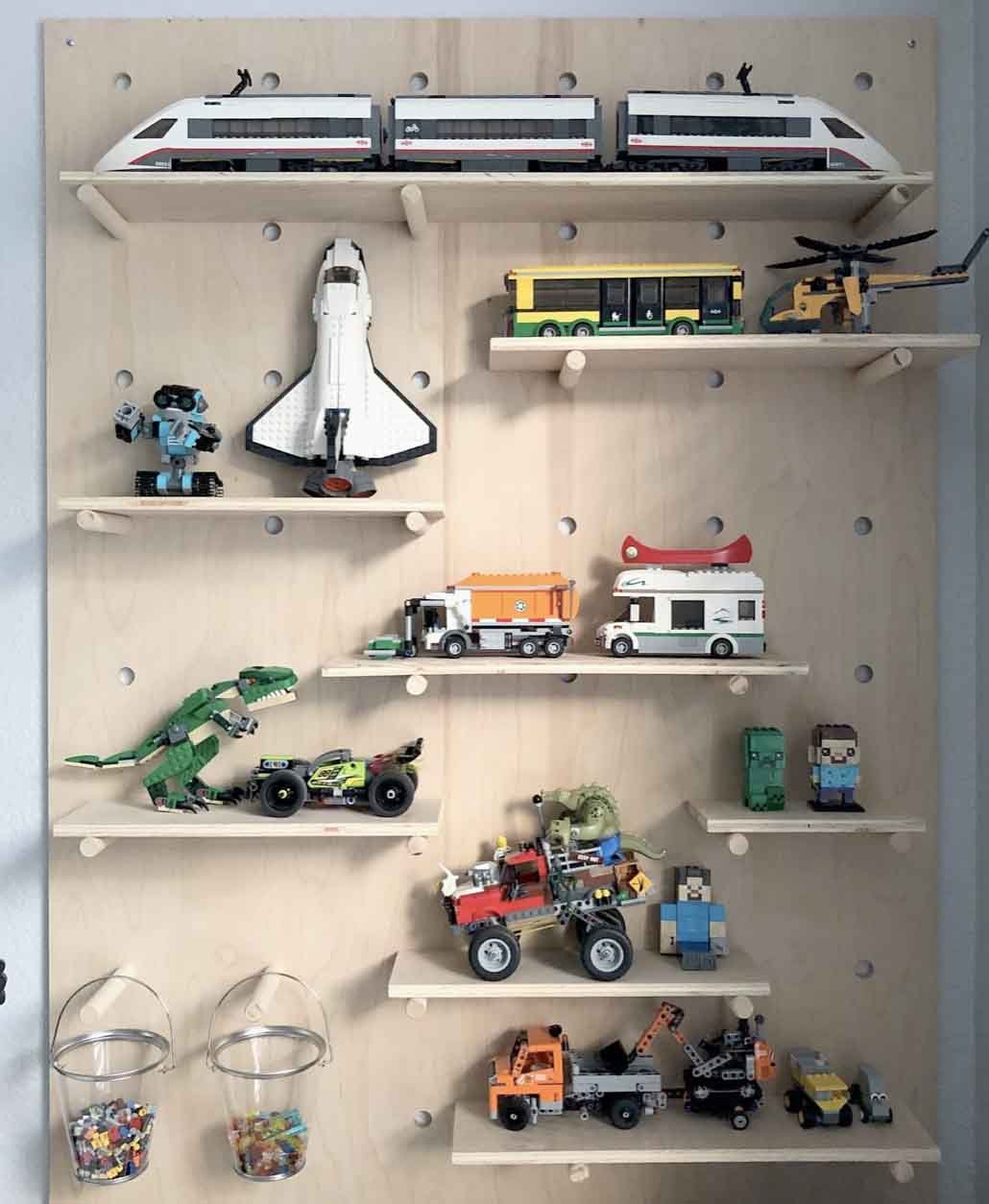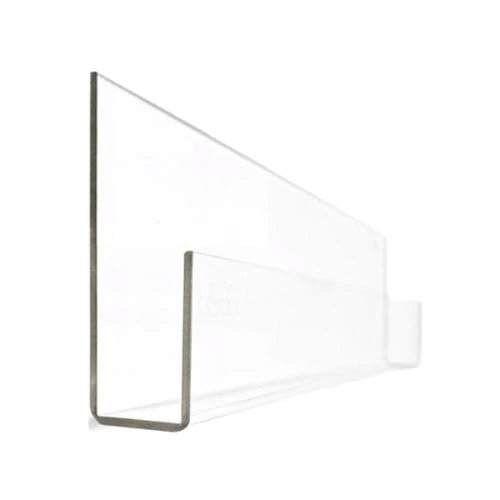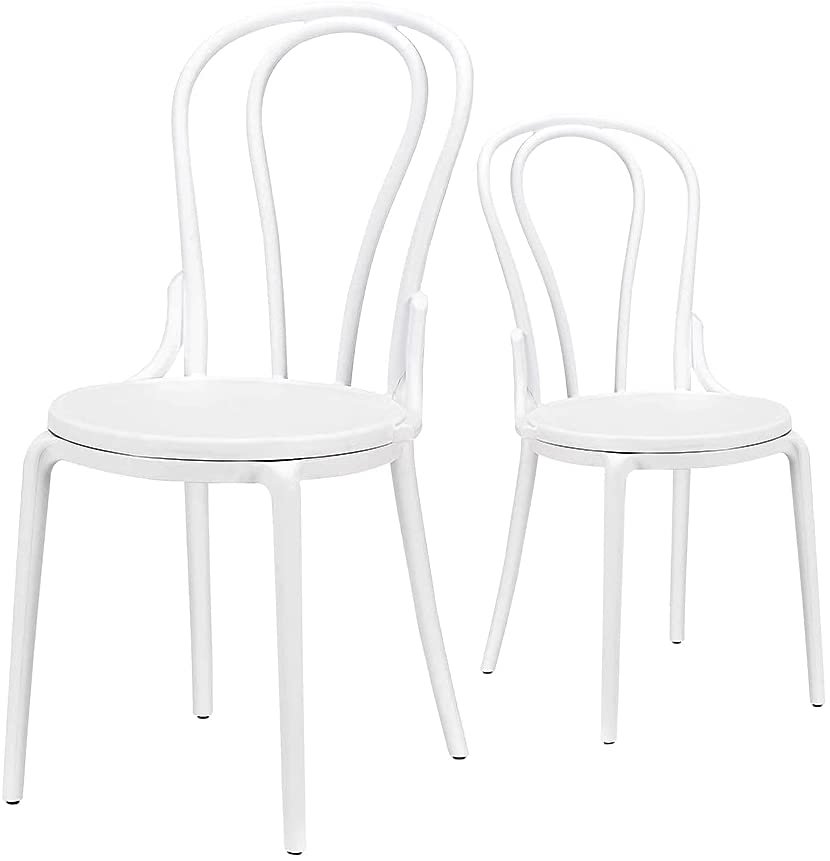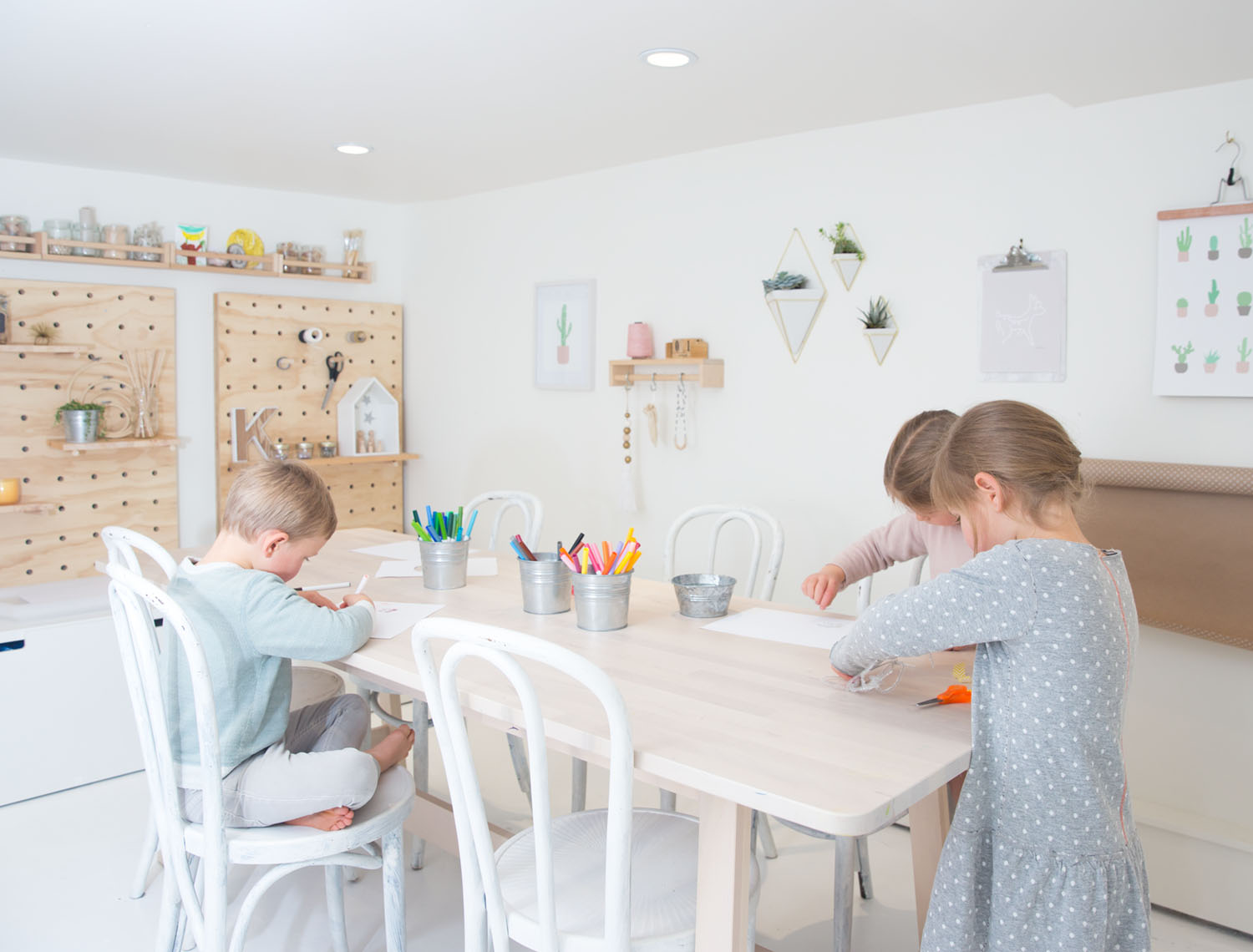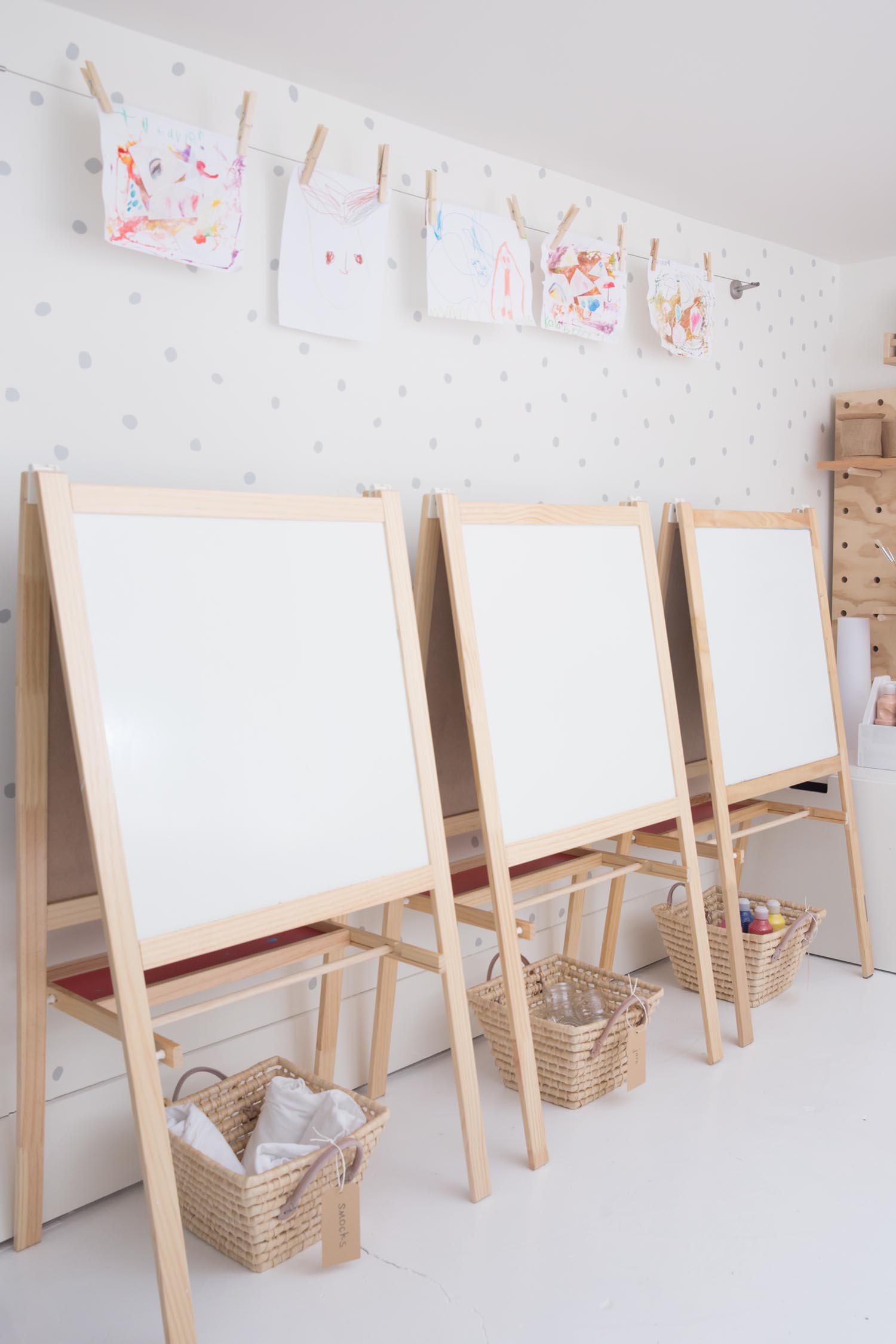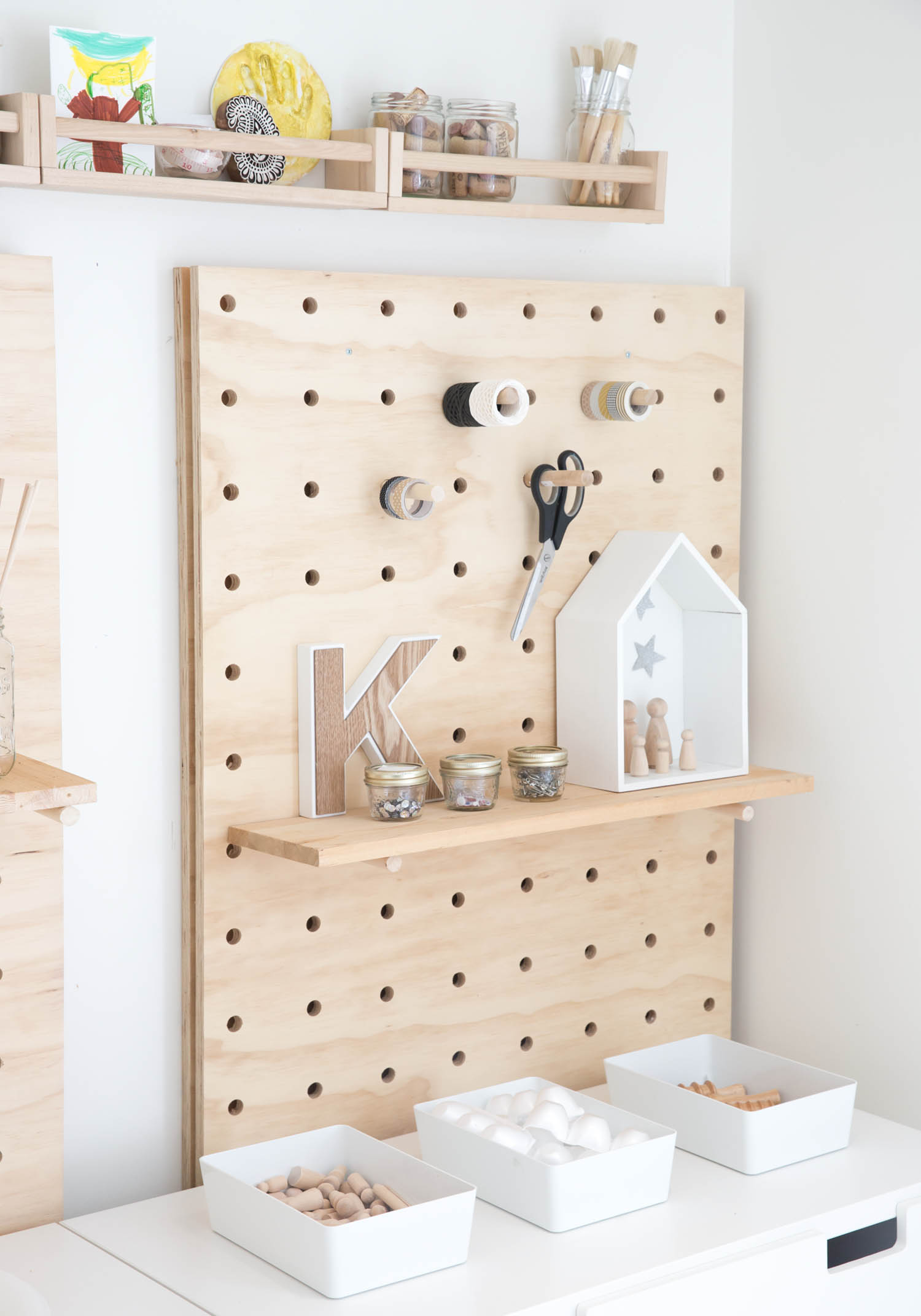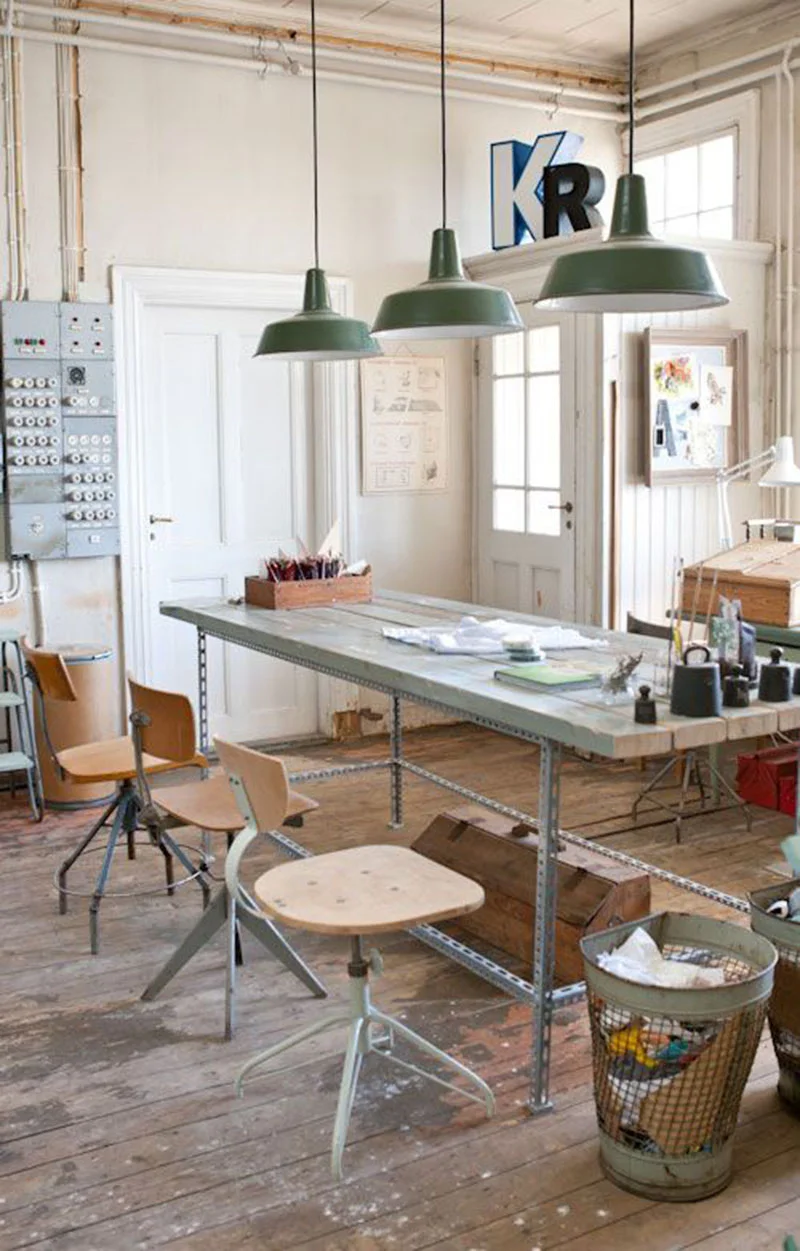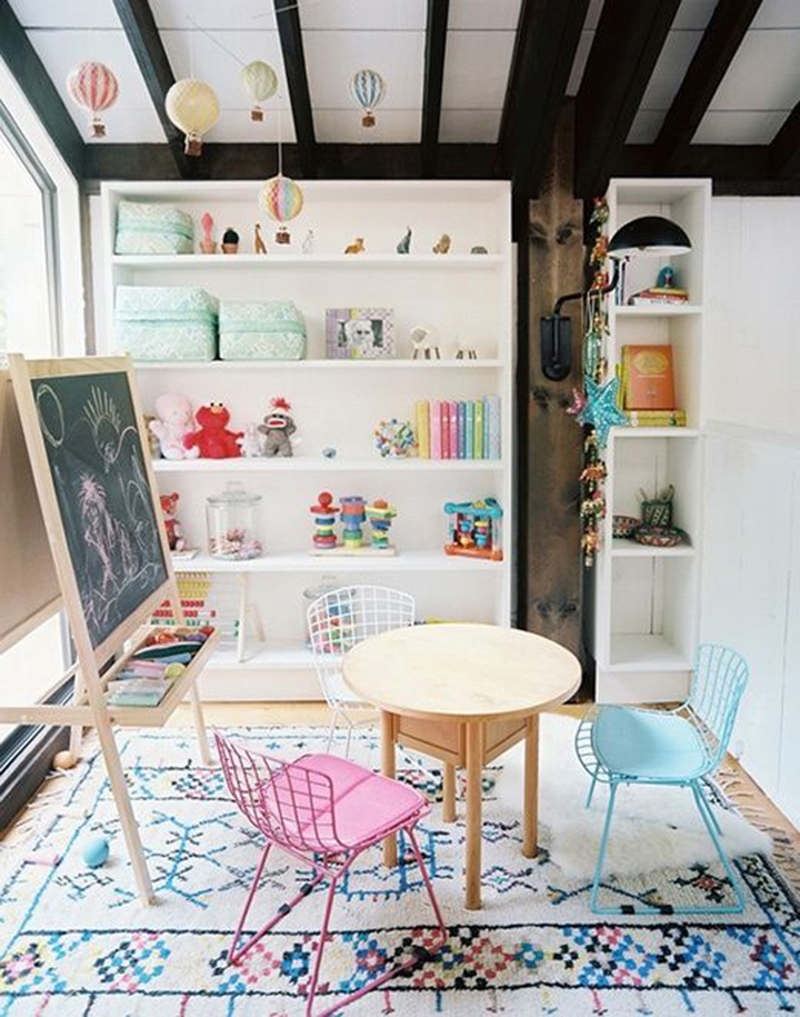While having a kids’ art studio is your own home may be out of reach for many people, creating an art space for children is something that you can do no matter how big or small of a space you have!
Sophie & Minji Playroom Project
“Art is a place for children to learn to trust their ideas, themselves and to explore what is possible.”
~Maryann F. Kohl
After creating art spaces in both clients’ homes and also our own home, I have learned some key takeaways about how to create a functional art space for kids.
Clear table space (or floor space if no table!)
A table space without clutter is the ideal place to start art creations. Having a clear area (can be a piece of floor!) gives kids the opportunity to start with a blank slate and let their imaginations run wild. In the same way as starting any organizing project by clearing away the clutter, having a clear area to create really is the ideal start.
Open-ended supplies
Group like supplies together (i.e the corks in a jar, paint brushes together, washi tape together, egg cartons together, etc.). Giving open ended supplies (rather than craft kits with a one purpose art idea) encourages kids to use their own imagination and ideas to create. Process art (basically art that is self-directed by the child with the emphasis on discovery) is by far my favourite way to create with kids, as the focus is on the artistic experience rather than the final product. I love this type of art, especially when kids are learning (always!) and still feel like they are making ‘mistakes’ with their art; you can always alter your course when there is no end ‘product’ that needs to look a certain way! If you are working with a small space (i.e. an art corner), think about having a box tucked away in a nearby closet with key supplies to bring out when needed.
Kids Creative Art Studio Project
3. Keep the space simple and organized
Harder said than done, but a relatively tidy space when starting out allows creativity to go wild! While our art space appears like a chaotic mess by the end of an art session, so much is learned in the clean up and keeping of a simple and organized space. Kids tend to treat materials with more care when they are tasked with maintaining an organized system and having items that are easy to find enables a good start to a new project. With an organized space, kids can learn to come and create more frequently and independently when the impulse (or need to decompress) arises.
4. Display kids’ art!
This one is SO important! Making a point of keeping your children’s art on display in your home and making a point to share your joy in their projects will certainly help little ones feel proud of their contributions to your home decor. I love the Ikea Dignitet wire for a simple and easily changeable hanging solution and of course, hanging framed work or canvases of kids’ art is a lovely way to incorporate their work into your home too.
Kids Creative Art Studio Project
5. Keep a positive attitude!
Art, like almost everything in life requires patience and practice. Keeping the mood happy and light and navigating new supplies together with your little ones can keep an art session from turning into a frustrating experience that ends in tears. One tip I’ve learned over the years is to provide supplies that are age appropriate - while small beads will be near impossible for toddlers to use, finger painting will likely provide a super fun, albeit messy experience. As kids spend more time practicing, they can work more and more independently.
GET THE LOOK…
IF YOU LIKED THIS POST, YOU MAY LIKE THESE TOO…


